General Questions About Mikvehs
There are different spellings in Latin characters of the German word Mikwe, for example Mikweh, Mikve, Mikveh, Miqwe, Miqve, Miqweh etc. These are just different options to reproduce the Hebrew characters. None of these are wrong, in German Mikwe is simply most commonly used, in English mikve(h).
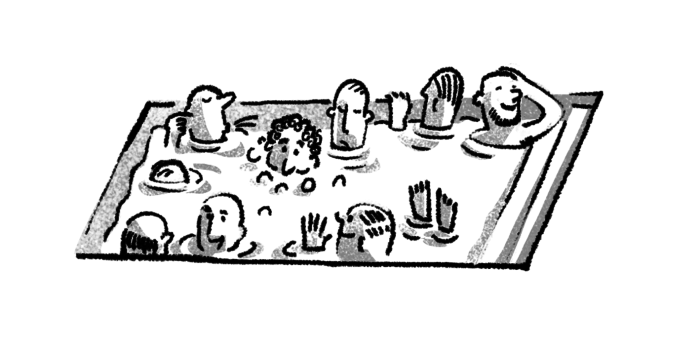
You always immerse yourself alone in the mikveh basin. There is, however, another person present (for women always a woman, for men always a man), who observes the immersion and declares it valid. In short: Somebody who pays attention that everything takes place in accordance with the Commandments and who can attest to the immersion.
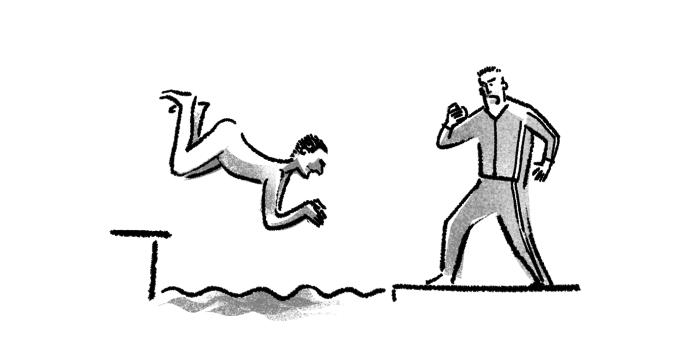
The immersion itself usually does not take long. You climb into the basin, immerse yourself fully (depending on tradition three times or more) and speak a short blessing in between the immersions. Everything else depends on several factors, such as: do you have to wait until it is your turn or not; how much physical cleansing, combing and removing make-up is required in advance; how much clothing, jewellery etc. needs to be taken off and so on.
Is there a time lag between the bathers, i.e. if I went to the mikveh now, when would the next person be allowed in? Is the water changed in between?
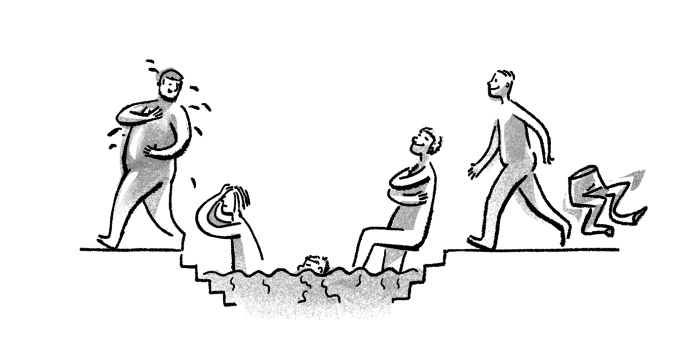
Modern mikvehs have water purification and filtration systems, which means one person after another can use the basin. In addition, the basins undergo thorough and comprehensive cleaning, although not every day.
In a mikveh such as the one in Erfurt, the river or the groundwater was able to flow into and out of the basin by itself. This way a natural water-exchange process took place. So in this sense there was no “limit” for visits.
How can you prove that you’ve been to the mikveh? Is there a form that gets stamped, is there a witness?
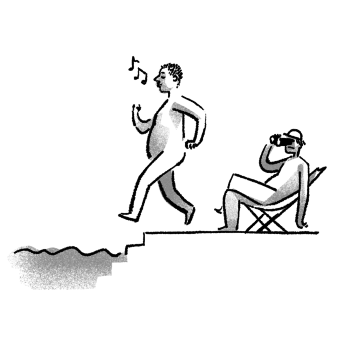
Yes, there is a male or female witness who is present during the mikveh visit and who can confirm that the immersion has taken place in accordance with the Commandments.
If you have to take off everything that is foreign to the body, what about fixed dental braces, prostheses, pacemakers, artificial hips, tattoos, plaster casts, dyed hair etc.?
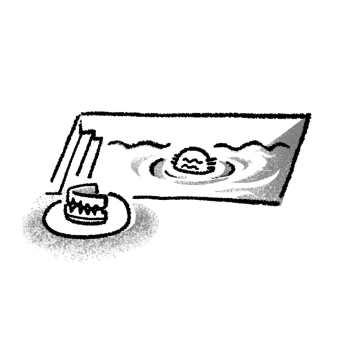
According to rabbinic law, two sorts of things are considered “foreign to the body”: 1. anything that covers most of the body (row) and 2. anything that bothers the person (makpid). “Bothering” here means “what you feel” and not forget, i.e. what has a constant presence in your perception.
Therefore, according to the first law, any object covering the major part of a body part needs to be removed, even if it should be desired and comfortable. According to the second law, an object that covers a small part of the body, but is uncomfortable or undesired (e.g. a bandage or band-aid), is considered as a “barrier” to the water and needs to be removed as well.
So in the Middle Ages and also today, anyone with a bandage covering an open wound would not have gone to the mikveh until it had healed sufficiently for the bandage to be removed.
Today, different provisions apply to the items mentioned in the question:
- Fixed dental braces: The mouth is not opened during submersion, so braces should not really matter. However, Rabbi Yosef Elyashi, who heads the Lithuanian orthodox wing, stipulated in 2010 that braces are a “barrier” between the water and the body. Therefore, removable braces are the only option for his followers. Children and teenagers may of course still wear fixed braces, as they do not go to the mikveh.
- Dentures: The rule here is that everything which is firmly anchored, remains of course in the mouth. For removable dentures, the same rule applies as for dental braces: They should be removed.
- Pacemakers and artificial hips etc. are part of the body and serve to save or support life. They do not constitute an obstacle to going to the mikveh.
- Tattoo: A tattoo would be out of the question for an orthodox Jew. However, if someone is already tattooed and starts to live his or her Jewish faith more intensely, then tattoos are considered to be part of the body and do not have to be removed before he or she goes to the mikveh.
- Gypsum is a “barrier” between the water and the body. It therefore renders a visit to the mikveh impossible. Casts should not come into contact with water anyway. If, however, a cast needs to be worn for a long time, a talk to the rabbi may be worthwhile …
- Strictly speaking, hair dye would constitute a “barrier”. Most rabbis, however, are lenient in this respect. This also has to do with the fact that dye penetrates the hair’s structure: It has therefore no “own substance” anymore, cannot be simply removed and cannot be felt anymore.
Religious impurity cannot be equated with physical impurity, and therefore all blood is not the same.
It is important that the blood from wounds is not ingested again. For example: If you have cut your finger while preparing a meal, you should remove the blood where possible, but the food does not become completely unkosher. Or, if you have taken a bite out of an apple and bleeding gums have left some blood on the apple, you should avoid that spot itself, but you can eat the rest of the apple.

No. He can touch the blood of permitted animals, but he may not ingest it. His knife, however, needs to be kosher and it needs be made kosher, i.e. religiously purified.
Do men and women go to the mikveh at the same time? If so, how many people are in the basin at the same time?
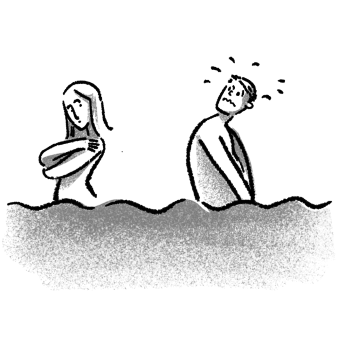
No, definitely not. A man/woman always enters the mikveh alone and without any person of the opposite sex being present. Only a male or female assistant is present in order to attest to the proper conduct of immersion.

In general, children do not go to the mikveh. However, Judaism is very diverse and so there are different practices with regard to this: In some modern currents, for example, boys and girls visit the mikveh before their Bar Mitzvah etc.
Normally, the mikveh is visited for the first time before your wedding.

No, this was and is handled very differently. Generally, it was ideal when the mikveh was in the immediate vicinity of the synagogue. The Jewish community of a town was and is keen that both buildings are within walking distance to one another, but this could not and cannot always be provided.
However, as you go to the mikveh on any ordinary weekday (and not on the Shabbat itself), it is also possible to drive to a more distant bath these days. Many people use this possibility, simply because they prefer another mikveh.
No, in this case you can (and should) wait a little, but you remain in a state of ritual impuritity in the meantime.

Larger communities generally do have a mikveh. If not, it is usually possible to visit the mikveh in another town.
Of course. All orthodox Jews, men and women, are (theoretically) required to go to the mikveh. Also, many less orthodox Jews have discovered the mikveh as a spiritual place and cultural heritage for themselves in the last decades.
It is not only people who religiously purify themselves in the mikveh. Crockery is also immersed there, i.e. koshered (= made kosher). This applies to newly bought pots, pans, plates etc. and those that have become impure.
For this procedure, the rule also applies that the objects are cleaned beforehand and only then immersed in the mikveh water. Modern mikvehs have a second, smaller basin for this purpose.
Another way to kasher is to place everything in a cauldron or a large pot with boiling water.
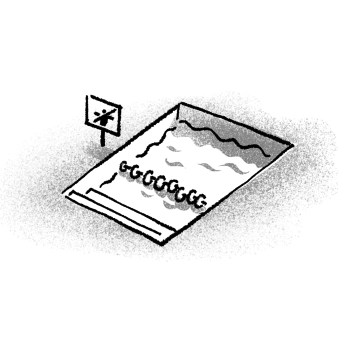
In general, you can stand in the mikveh basin and you only briefly go into a kind of fetal position during immersion, so you do not need to be able to swim. The basin is small, there are steps leading down and help is always at hand from the person who watches the immersion and attests to its execution.
